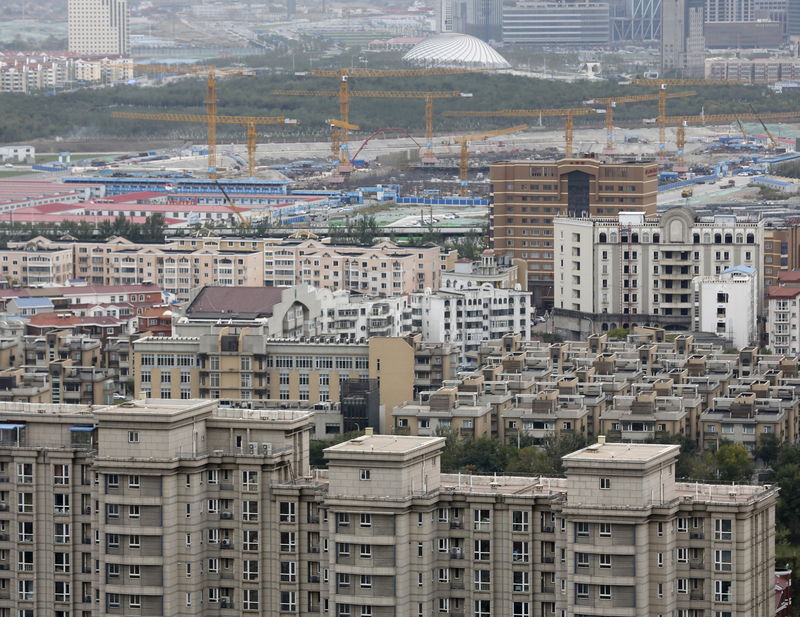Investing.com’s stocks of the week
BEIJING (Reuters) - Home prices in some smaller Chinese cities could fall next year as the world's second-largest economy slows, Fitch Ratings said on Monday, while adding the government is expected to step in to stem any precipitous decline.
Nationwide growth in China's property prices has moderated this year in response to measures to curb speculation. But many investors are still exploiting regulatory loopholes, turning to smaller and less restrictive cities.
A broad slowdown in the economy, however, is threatening to further chill the sector, which is a significant growth driver. Property sales by floor area have been declining month-on-month, though they are still higher this year on the whole compared with 2017.
Homebuilders are likely to face more difficult market conditions in 2019, with slowing economic growth and deteriorating sentiment likely to drag down sales volumes and stifle home-price gains, Fitch said in a statement, after cutting its outlook on the sector to negative from stable.
Property developers, in a bid to spur sales, have tried to manipulate prices, deliberately postponing sales to prop up prices, illegally providing loans for downpayment or even publishing false price information, according to the government.
But the rating agency said the downturn is likely to be muted, and the government has considerable scope to ease policies to support the market if required.
Sales volumes may fall up to 10 percent, following low-single-digit gains in 2018, with declines likely to be the strongest in lower-tier cities, it said.
Smaller cities will be most affected by the scaling back of monetized resettlement of shanty-town residents, Fitch said.
Lower-tier cities have been broadly driving price gains in the overall market this year, partly due to China's long-term campaign to modernize housing developments.
BOOST FROM REDEVELOPMENT
Shanty-town redevelopment has boosted property demand as residents use cash compensation to buy a new home when existing ones are demolished.
Not all analysts are as pessimistic as Fitch about 2019.
Sales volume is headed for a decline next year, although the downturn should be "shallower" and "shorter" than previous ones, said Rosealea Yao, a Beijing-based property analyst at Gavekal Dragonomics.
For 2018, the market could expand 2 percent to a record 1.7 billion square meters, in a fourth straight year of gains, Yao wrote in a note on Monday.
China's home prices have risen 42 consecutive months, according to data for 70 major cities tracked by the country's statistics bureau.
Prices for the rest of China's 600-plus cities are not regularly published by the bureau.
"Home prices are likely to remain largely stable, but could fall in some lower-tier cities. This would represent a significant softening from the 12 percent year-on-year rise in average nationwide prices in January-September 2018," Fitch said.
"That said, prices will be closely managed by the government, which suggests any price moves will be modest."
The pent-up demand created by tight restrictions in higher-tier cities will limit sales declines in those areas, Fitch said.
Gavekal's Yao said that by region, the east, central and southwest provinces have solid population growth and economies, so sales have been more sustainable.
The northeast is "particularly troubled", she said.
